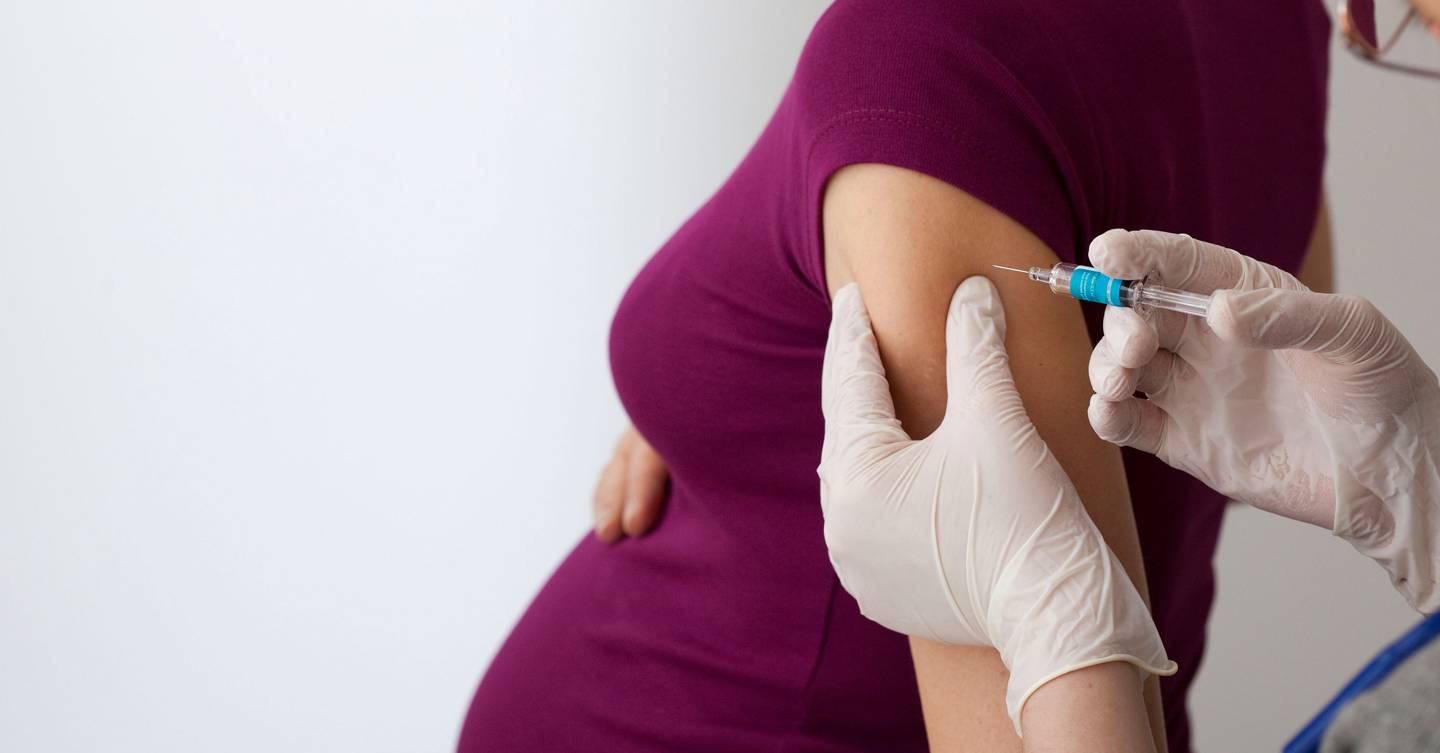This weekend, it was revealed that 18-to-34-year-old women were the most likely group to refuse the Covid-19 vaccine in the UK.
The reason? The perceived risks for fertility and pregnancy: whether they were currently expecting, trying to conceive, or just planning to have children in the future.
The YouGov poll showed that a quarter of women at childbearing age had concerns that the vaccine would either affect their unborn child or their fertility down the line.
Currently in the UK, pregnant women are being advised to wait until after the birth to have the Covid-19 vaccine while women who conceive between their doses are being told to delay the second.
The official Government line is that there is ‘no evidence’ to suggest that pregnant women will be negatively affected by the Covid-19 vaccine, nor will it have an effect on fertility (1), though in reality pregnant women have not been able to take part in vaccine trials in the UK.
“Specific research into the effect of the Covid-19 vaccine in pregnancy has not yet been carried out,” explains Dr Matthew Prior, Consultant Doctor and Medical Director at Dr Fertility.
“Given that little is known about the Covid-19 vaccine and pregnancy, the current Joint Committee on Vaccination and Immunisation (JCVI) advice is precautionary. While there is no evidence that the vaccine may be harmful, there is also no evidence that the vaccine can reduce fertility.
“The positive news is that after a long year, some people in the UK have already received vaccination against Covid-19. What’s important at this stage, is that pregnant women and women considering getting pregnant understand how this may affect them, specifically.”
Here, GLAMOUR takes a deep dive into exactly what we know so far about the risks, recommendations and research of a Covid-19 vaccine relating to fertility and pregnancy.
Trying for a baby
The original Pfizer and BioNTech clinical vaccine trial in 2020 did not include pregnant women. However, researchers did later reveal that 23 of the test subjects became pregnant during the course of the study. 12 of these had received the vaccine, and 11 of them had received the placebo (2).
Dr Prior explains: “If you are recommended to have the vaccine because you are clinically vulnerable or a healthcare worker, you are currently being advised to have the vaccine and wait three months after the first dose before trying to conceive.”
Under the latest guidance of Public Health England (3), if pregnancy occurs between the two doses, the second dose should also be delayed until after the pregnancy is over.
Further up-to-date information can be found at the Royal College of Obstetricians and Gynaecologists (RCOG).
Expecting a baby
During Covid-19, it has been considered ‘particularly important’ that pregnant women receive the influenza vaccine to protect both the woman and the baby from the adverse effects of becoming seriously ill with flu (3). While women are routinely vaccinated for diseases such as whooping cough during pregnancy, it’s not uncommon for them to be advised against a new vaccination.
Researchers have been keen to reassure pregnant women that the vaccine does not contain live SARS-CoV-2 virus and therefore cannot cause COVID-19 infection in her or in her baby (4), however further clinical research is needed to support these conclusions (5).
At present, animal studies do not indicate direct or indirect harmful effects on the pregnancy or on
embryo/foetal development, parturition or post-natal development (3).
High-risk pregnancies
For some pregnant women, the potential benefits of Covid-19 vaccination are particularly important, according to the JCVI (6).
It might be that they are at higher risk of catching the infection due to their jobs or circumstance. Others who have clinical conditions that put them at higher risk of suffering serious complications from
Covid-19 and may also benefit from it.
Currently, women in these circumstances are being advised to discuss the protection the vaccination may offer them with a health professional.
Breastfeeding
The JCVI has recommended that the vaccine can be received while breastfeeding (7).
Currently, it is unknown whether the COVID-19 vaccine is excreted in human milk, however, it has long been accepted that vaccines do not pose a risk to a breastfeeding infant.
Future fertility
Women who have already had the vaccine are being told there is no reason to wait more than three months after receiving their final injection to start a family. As yet, there is no evidence to suggest they would have a problem conceiving, either.
So far, animal studies do not indicate direct or indirect harmful effects with respect to reproductive toxicity (3) yet there is no hard evidence relating to humans, as yet.
During a briefing in December, the UK Government’s Chief Medical Officer Professor Chris Whitty reassured prospective parents that there was “no current evidence of any impact on fertility” adding: “Lots of concerns are there, and people (who) are wanting to start families, of course, have concerns very reasonably.
“It’s not something seen as a problem – this is not an area where I think people should be concerned.”
SOURCES
1. NHS: Coronavirus (COVID-19) vaccine
2. Pregnant women in the US will probably be denied coronavirus vaccines until next year despite being at high risk for complications
3. Pfizer/BioNTech guidance for Health Professionals
4. There’s no evidence the Pfizer vaccine interferes with the placenta
5. The safety of COVID-19 vaccines when given in pregnancy
6. Having COVID-19 Vaccine if you are planning to conceive
7. NHS: A guide to COVID-19 vaccination
